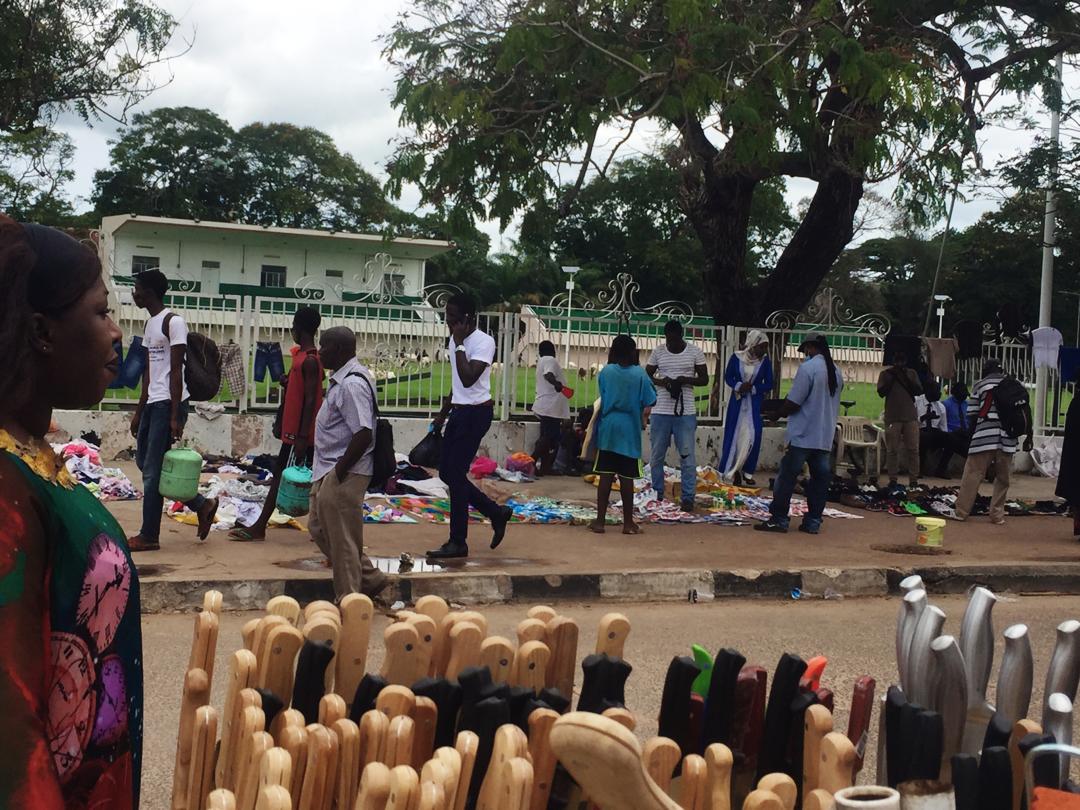By Sariba Manneh
In bit to making the importation of plastic bags a history in the country- buying and selling of the bags, the country’s agency responsible to environment-National Environment Agency has reaffirmed its stand to implementing the ban of plastic bags.
The Gambia government under former president Yahya Jammeh on July 1, 2015, banned the importation of plastic bags in the country- in which stringent measures are put in place for anyone who is found wanting for buying and selling of plastic bags in the country.
However, since the change of government in 2017, this law seems futile as the business of plastic bags still exist in the country, which brought about deplorable condition to many communities across the country especially Bakoteh Dumpsite-who lament about inhaling hazardous smokes of plastic bags during burning at the dumpsite.
But now National Environmental Agency- an agency responsible for environment has recently reaffirmed its position to stopping the activity of plastic bags in the country in an interview with The Voice Newspaper on Wednesday.
For the latest development-Sheikh Alkinky Sanyang, director of environmental education and communication officer of National Environment Agency (NEA) has told the Environment Colum about the dangers of plastic bags and the position of his agency.
He said that plastic bags caused hazardous pollution the environment and a threat to both human and animal health, and called for the ban of plastic importation and usage in the country.
“Due to improper disposal systems, many domestic and stray animals end up consuming plastics and get entangle and suffocate to death. Thousands of animals worldwide including cow, goats, sheep, dolphins, turtles, whales, penguins are killed every year due to plastic bags ingestion. Many animals ingest plastic bags, mistaking them for food, and therefore die. And worse is, the ingested plastic bag remains intact even after the death and decomposition of the animal. Thus, it lies around in the landscape where another victim may ingest it,” he said.
Mr. Sanyang also called for public support and collaboration on the crusade of NEA to banning plastic bags in the country, adding that plastic bags do not decompose for many years and that it has potentials to destroying soil nutrients and structure.
He said livestock are also killed by plastic bags digesting it that he correlated into a huge economic loss to farmers.
He said: “The continuous use of plastic bags threatens our food security as they resist decomposition for decades and becomes a virtual eye-sore in public places. Most plastic wastes find their ways into gutters and water ways and cause blockage during rainy season and subsequently lead to flooding of cities and growth centers.”
He said Plastic bags are often misused by putting in it hot or cold food like “Ebbeh, Café Touba, Nan-Mburr” etc underlining that the use of plastic bags to package hot or cold food stuffs in it is very dangerous as it releases the chemical residue content of the plastic into the food, and can lead to long-term health problems.
He revealed that the Environmental Education & Communication team of the agency will embark on a nationwide sensitization tour to community radio stations. These local radio FM stations will include Paradise FM in Farafenni, GRTS radio in Basse, Brikamabaa Community radio, Soma FM and Kaira FM in Kuloro. These phone-in radio programs will generate lots of listenership who can also contributed through phone calls.
“The ban on plastic bags is a right move in the right direction as it reflects on the dangers to both human and the environment. Plastic bags are non-biodegradables and can cause serious threat to the fragile eco-system of the country and the environment in general”. Dr. Badgie warned.
This dire situation, he pointed out warranted the Government of the Gambia to completely ban the importation of plastics into the country with effect from 1st July 2015 and equally announced a zero tolerance on environmental cleanliness to avert the numerous problems related to environmental mismanagement.
Also, Barrister Lamin Samateh commended The Gambia government and the National Environmental Agency for their foresight and commitment in averting serious environmental hazards by banning the usage, sale, and consumption of plastic bags.
Thus, he called on all and sundry not to smuggle this ban substance through our borders into the country.




